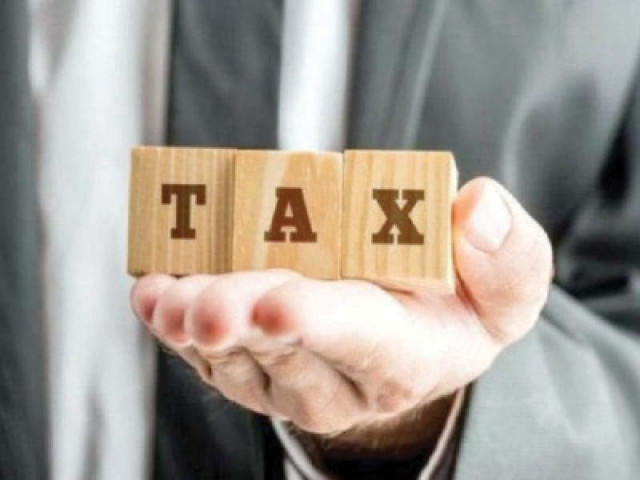Aurangzeb plans to bolster tax revenue by Rs2.5tr
Finance minister says govt eyes fresh IMF deal by June

Finance Minister Muhammad Aurangzeb has said the government is targeting to win a staff-level agreement (SLA) for the next IMF loan programme by the end of June 2024, aiming to secure a three-year EFF (extended fund facility) while the size of the package is yet to be determined through deliberation and discussions.
During his first visit to the Pakistan Stock Exchange (PSX) on Friday after assuming the office, the minister cautiously hinted that the budget "pro-growth" for the next fiscal year 2024-25 may not be pro-growth.
Instead, he outlined plans to bolster tax revenue by a substantial Rs2.5 trillion, potentially reaching a total of Rs12 trillion this fiscal year (FY24). This strategy entails resolving financial disputes within three months, implementing a track and trace system, and appointing an international consultant for end-to-end digitalisation of the Federal Board of Revenue (FBR) by the end of April.
These measures are aimed at curbing financial leakages, while simultaneously boosting revenue and remittances.
The finance minister maintained the government was targeting to get into the bidding process to privatise PIA and outsource airports by June, moving closer to completing these endeavours.
He emphasised that super taxes, windfall taxes, and businesses reliant on import-led subsidies are no longer sustainable moving forward.
The private sector would lead growth and the country, infrastructure projects would be done on a public-private partnership model to create fiscal space with the government. The inflation rate would gradually go down this year which is hoped to be followed by a cut in the central bank's policy rate, Aurangzeb said.
He said that during the second and the last successful economic review by the IMF for the last tranche of $1.1 billion to Pakistan earlier this month, the Fund has given a very encouraging response over the country's aiming to enter into a "larger and longer program."
Pakistan would formally request the IMF for a new package during the IMF and World Bank's annual meeting being held in Washington in mid-April.
"We will try to get EFF further formalised and discuss features of the program…Those discussions will go into end-April into May.
We wish to achieve a staff-level agreement for the next program by the time we rape up this fiscal year by the end of June or first of July (2024)."
He, however, said it is premature to say anything that would be the size of the program. Discussions in this regard are yet to begin.
Reports, however, suggest the government is considering requesting for the program in the range of $5-8 billion for three years.
The plans for a fresh deal with the global lender come as Pakistan recently successfully completed the second and final review under a short-term IMF stand-by arrangement worth $3 billion. This paved the way for the release of the last tranche, totalling nearly $1.1 billion.
Despite this achievement, Pakistan's delicate $350-billion economy remains in dire need of external financing to bolster its foreign exchange reserves and avert another macroeconomic crisis. Prime Minister Shehbaz Sharif has also earlier hinted at the inevitability of seeking additional IMF assistance while acknowledging the pressing economic challenges upon assuming the highest political office in the country.
Sustainable growth
Responding to a question during his visit on Friday, Aurangzeb said the import and consumption-led model has failed to achieve sustainable economic growth.
"Pro-growth budget means you run out of dollars because it was import led…. the moment you run out of dollars you have to go back to those institutions (IMF for another program). So that is not sustainable. We have to transform it into an export-led growth model (and that will not happen over the night)."
He said the turnaround in agriculture output and software and technology exports would remain the two major driving forces of ramping up the economic growth gradually this year and in the next year as well.
Pakistan is expecting a bumper crop of wheat as well after achieving a bumper crop of rice this year. Farmers are producing 36 maund (40kg) per acre at present. We will become self-sufficient in the staple crops if the per acre yield is increased to 40 maund/acre and we can export if by taking yield to over 40 maund/acre."
The country is projected to roughly achieve IT exports of $3.2 billion this year (FY24). It would be taken to $4-4.5 billion next year, he said.
"These (agri and tech) are the levers of growth which are in our hands. No one has stopped us from doing so, but implementation and execution are lacking in almost all the sectors. IMF program and no program…has nothing to do with achieving them and this totally depends upon us."
He said Pakistan can generate additional revenue in taxes worth Rs2.5 trillion through concluding cases in financial leakages of Rs1.7 trillion that have been pending for quite a long time. "We need to make decisions in the next three months. We may potentially win cases for half of the amount (Rs850 billion) from here."
Besides, other financial leakages of Rs3 trillion can be controlled through implementing a track and trace system.
"If we control the leakages of half of the amount (Rs1.5 trillion), the sum of the potentially recoverable amount comes around to Rs2.5 trillion. This would take our total collection of revenue to the tune of Rs12 trillion against the set target for Rs9.4 trillion for FY24."
Besides, the power system is facing theft and leakages worth another Rs500 billion, he said, adding the government has initiated work to control it as well.
The Rs2-2.5 trillion will go to the marginalised population and enhance the BISP program, he said.
The minister said the government of Prime Minister Shehbaz Sharif has continued the process of Federal Board of Revenue's (FBR) restructuring which was initiated by the caretaker government and particularly by the interim finance minister Dr Shamshad Akhtar.
The government is aimed at fully digitalising FBR to end human intervention, human error and transparency. This will minimise financial leakages, and increase collection of revenue and remittances. In this regard, the government will launch an RFP (request for proposals) to appoint a world-class consultant on April 8, 2024.
The government would appoint and announce the name of the consultant by the end of April. Dr Shamshad Akhtar and other experts remain on the board to culminate FBR restructuring.
He said It is the private sector that has to lead this country. "The government's work is to provide policy framework and policy continuity. Government has no business in being business."
PSX can help raise funds for infrastructure projects. The private sector will be on board around the time of budget preparation for FY25.
Throughout his address and question and answer session, he reiterated the nation knows what the problems are and what their solutions are, not for years but for decades. However, implementation and execution are lacking.



















COMMENTS
Comments are moderated and generally will be posted if they are on-topic and not abusive.
For more information, please see our Comments FAQ